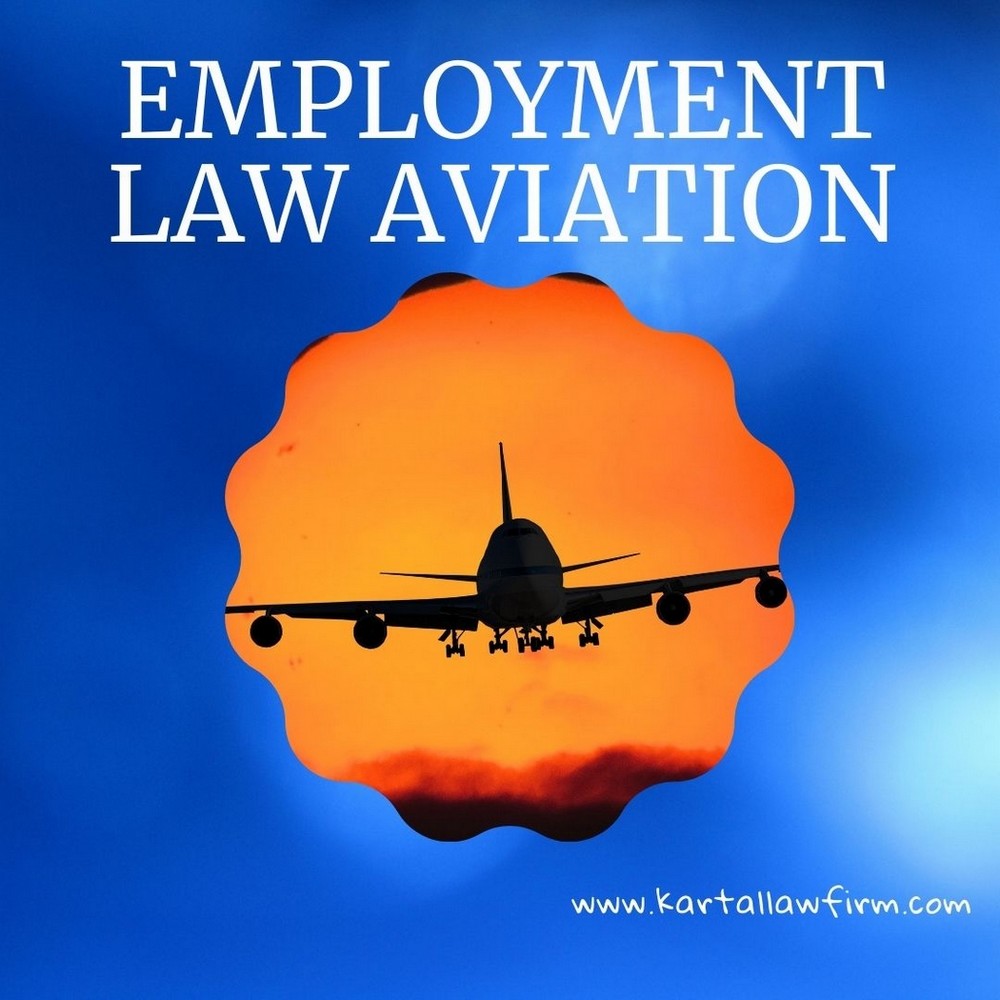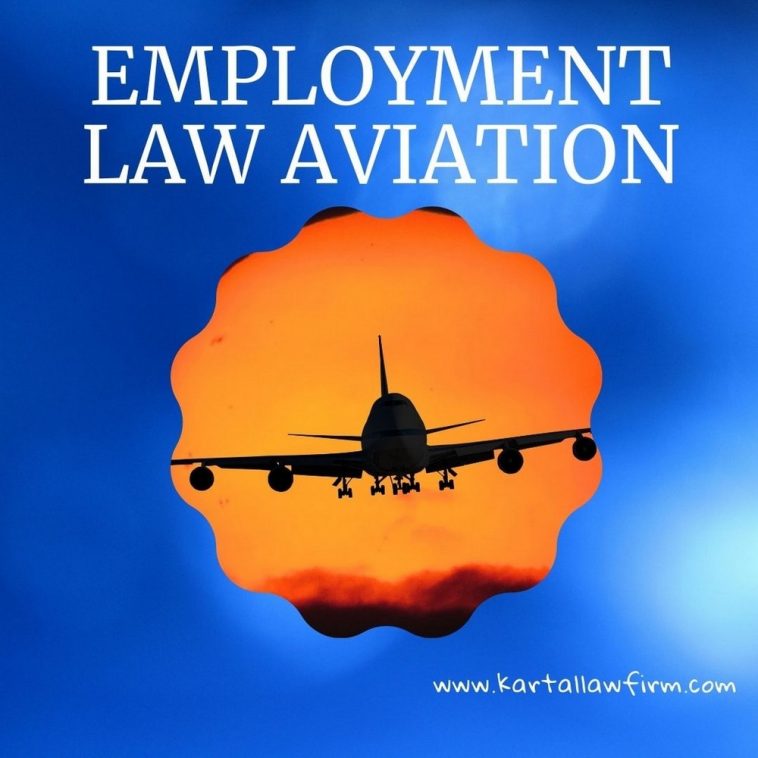
Uncovering the Challenges of Unpaid Airline Work in Canada
Recent political moves in Canada have reignited a conversation that has long been simmering in the background of the airline industry—a conversation about the fairness of unpaid work for flight attendants. The bill introduced by interim NDP leader Don Davies is not just a reaction to a tense three-day strike; it is a call to address the tricky parts of an industry practice many have quietly accepted for far too long.
The proposed legislation aims to ensure that flight attendants are compensated for all hours worked, including those before takeoff and after landing—the ground tasks that many argue are critical to airline safety and customer service. This opinion editorial will take a closer look at the various dimensions of this issue, exploring its professional, economic, and regulatory impacts. We will also consider broader labour experiences and the possible effects of such legislation on the travel and aviation landscape.
Questioning the Status Quo of Unpaid Ground Work
For years, it has been common practice in the airline industry to pay flight attendants only for the time they spend in the air. The many subtle parts of pre-landing and post-landing tasks—such as safety checks, passenger boarding, and deplaning procedures—have largely been viewed as part and parcel of the job, done without extra compensation. However, this tradition has begun to feel increasingly off-putting to a workforce that prides itself on professionalism, responsibility, and the significant role they play in the safety and comfort of passengers.
At its core, the issue is simple: no worker in Canada, or anywhere else for that matter, should have to perform essential duties without fair compensation. Yet the reality remains tangled with factors such as long-standing collective bargaining agreements, the competitive pressures in the airline market, and a slow-moving legislative framework. The debate is both timely and necessary, compelling us to examine how current policies measure up to the expectations of modern workers.
Ground Rules: What Exactly Is at Stake?
Understanding the full scope of the discussion requires a deep dive into the tasks and responsibilities that occur on the ground. While customers generally experience the convenience of air travel, they rarely see the behind-the-scenes work that keeps everything running smoothly. Whether it is setting up the cabin, assisting with boarding, or ensuring that safety protocols are met, flight attendants shoulder many responsibilities before and after the flight itself.
Key Tasks Requiring Compensation
- Pre-flight safety checks
- Assisting with passenger boarding and deplaning
- Catering to passenger needs during delays and turnaround
- Post-flight tasks such as clearance of the cabin
These tasks amount to a significant workload that directly impacts the airline’s overall performance and customer satisfaction levels. When airlines attempt to cut costs, the unpaid ground work becomes an easy target—an area where cost-cutting measures do not feel as apparent to the average traveler. However, these savings come at the expense of the flight crew, who might be spending additional hours on duties that go uncompensated.
Implications of the Proposed Legislation
The proposed bill champions the idea that “no one in Canada should be expected to work for free.” In essence, it is a call for respect—a desire to recognize the professionalism and dedication of flight attendants with remuneration that reflects the true scope of their job. However, the bill itself is loaded with challenges that will require careful ironing out of the finer details.
Political and Economic Considerations
On one level, this legislative action is a reflection of rising public sentiment—workers across the board are increasingly unwilling to accept practices that seem outdated or unfair. On another level, the proposal opens up a broader discussion about labour rights in a highly competitive industry. The political arena is divided: while some parties and stakeholders might see the bill as a necessary correction of an imbalance, others remain skeptical about its potential cost implications and the logistics of redefining job roles in a sector already squeezed by intense competition.
This tension highlights one of the nerve-racking twists in modern policymaking: finding a balance between protecting worker rights and ensuring that industries remain competitive and financially sustainable. For airlines already struggling with tight profit margins, mandated increased pay for ground work might mean higher ticket prices or reduced services—a highly delicate equation to balance.
Reflecting on Fairness and Professional Respect in Aviation
The concept of fairness is central to the debate around unpaid ground work. Employees in any field deserve compensation that reflects not only the hours worked but also the quality and commitment they bring to their roles. For flight attendants, whose contributions often extend beyond what is formally documented, there is an undeniable argument for broader recognition.
Building Professional Respect Through Legislation
Flight attendants are increasingly seen as ambassadors of safety and customer service in the highly regulated world of air travel. Hence, offering them comprehensive compensation is not just a matter of economic fairness—it is about acknowledging their role as key players in an operation that millions of people rely on daily.
By adopting a legislative approach to address these issues, policymakers have the opportunity to set a super important standard, one that reflects the demands of modern employment and worker well-being. This new bill could set a precedent in an industry that is often characterized by difficult-to-discern boundaries between paid hours and additional work.
Broader Impacts on the Airline Industry
Any change—especially one that calls for the re-evaluation of compensation structures—will inevitably have broader ripple effects in the airline industry. Airlines must consider the potential consequences of increased labour costs, not only in terms of immediate budget adjustments but also in their long-term operational strategies.
Potential Airline Reactions
Airlines, whether large or small, might have mixed feelings about such legislation:
- Competitive Pressure: Some carriers may argue that extra costs could lead to higher ticket prices or reduced routes, affecting the travel experience for everyday consumers.
- Industry Standards: A shift in policy could help level the playing field by ensuring all carriers adhere to the same minimum standards of worker compensation, thereby eliminating a common cost-cutting tool.
- Operational Shifts: Airlines might need to re-examine how they schedule flights and ground work, thereby affecting everything from staffing models to customer service protocols.
These considerations reveal the tricky parts of an issue that is not just about compensating workers, but about reshaping industry practices for the benefit of all stakeholders involved—employees, employers, and passengers alike.
Diving Into the Government’s Position
Government officials have been caught between two challenging pieces: advocacy for workers’ rights and the pragmatics of economic management in a competitive global market. The briefing notes reveal that the government has been somewhat skeptical about the union’s claims regarding unpaid work. There exists a belief, articulated by some decision-makers, that issues such as these should be handled by employers and unions working together rather than through broad legislative mandates.
Political Balancing Act
This position suggests that government intervention, if misapplied, might actually disrupt the delicate balance of collective bargaining—a process designed to allow both parties to figure a path through their specific economic and working conditions.
On the other hand, critics argue that leaving such matters solely to employers and unions is akin to letting market forces dictate what should be a super important matter of basic worker rights. The reality is that when negotiations stall or become overly tense, it is the employees, and ultimately the consumers, who face the consequences in the form of decreased service quality and potential disruptions in travel.
Historical Context: Lessons from Previous Legislation Attempts
This is not the first time the issue of unpaid ground work has surfaced in the Canadian political scene. Similar legislative attempts were made in recent years, only to falter amid political disagreements and debates over economic feasibility. The historical context provides us with a look at the little details that have complicated past efforts to redefine work time and compensation structures in aviation.
What Past Bills Have Taught Us
A review of earlier bills reveals several recurring themes:
- Resistance to Change: Both political opponents and industry representatives have expressed concerns that such reforms could impose unintended burdens on airlines that might already be under significant financial pressure.
- Lack of Broad Consensus: With only a handful of Members of Parliament (MPs) actively supporting changes, there has been an ongoing lack of sufficient backing to see comprehensive reform through to completion.
- Unresolved Financial Implications: The debate often centers on whether the costs incurred by airlines to pay for ground work would be sufficiently offset by the benefits of improved worker satisfaction and better safety standards.
These lessons from the past highlight the nerve-racking twists and turns in the policymaking process. They remind us that while the moral case for change is relatively clear, the road to effective reform is riddled with tension and conflicting interests.
The Human Element: Stories from the Flight Deck
Perhaps the most compelling aspect of this debate is not found in the statistics or the legislative language, but in the real-life stories of those who live it every day. Flight attendants have long been admired for their calm professionalism in the face of the unexpected—yet many struggle with the reality of unpaid work that extends their already lengthy shifts.
Real-Life Impacts on Flight Attendants
Several narratives have emerged from within the profession that illustrate the human side of this issue:
- A longtime flight attendant recounts how seemingly minor tasks quickly add up to extra, uncompensated hours each month, affecting both her personal life and her overall job satisfaction.
- Union representatives have shared examples of how the lack of proper compensation for ground work has led to a decline in morale and increased tension in the workplace.
- Industry insiders note that while some carriers have made incremental changes (such as paying a fraction of the hourly rate for an initial period), these measures still fall short of what many believe is a fair wage for essential responsibilities.
These personal accounts bring the debate into sharp focus. When worker well-being is at the heart of the issue, it becomes clear that the conversation is not just about numbers—it is about respect, dignity, and the essential recognition of every moment a flight attendant commits to ensuring safe travel.
The Practical Implications for Airlines and Travelers
A change in the regulatory approach to compensating flight attendants also carries significant implications for airlines and, by extension, the traveling public. It is important to consider how these shifts might affect operational efficiency, ticket pricing, and service quality in the long run.
Potential Outcomes for the Airline Industry
Here are some of the practical outcomes that might arise:
- Revised Scheduling: Airlines could revamp their scheduling models to ensure that both ground and in-flight duties are properly accounted for, reducing close-call situations where employees are overworked.
- Cost-Benefit Adjustments: While the initial financial burden might lead to higher operating costs, these could be balanced by improvements in worker morale and overall service reliability, which in turn may boost customer satisfaction.
- Industry-Wide Standards: If implemented well, the legislation could lead to a harmonized set of rules across the industry, reducing competition based solely on cost-cutting rather than on quality of service.
Ultimately, these adjustments may not be as intimidating as they seem. Instead, they could pave the way for an era where fairness and profitability are not mutually exclusive, but rather parts of a well-rounded operational strategy.
Comparisons with Global Practices in the Aviation Industry
Looking beyond Canada, it is worthwhile to take a closer look at how other North American airlines handle the issue of unpaid work for flight attendants. Some carriers, such as Porter Airlines and Delta, already offer some compensation for ground duties, setting a benchmark for what might be possible on a national scale.
Global Best Practices and Their Relevance
When we compare these practices to the status quo in Canada, several observations can be made:
- Proactive Compensation: Airlines that have taken steps to compensate flight attendants for ground work have often seen improvements in employee satisfaction and retention. This proactive approach not only benefits staff but also enhances overall customer service.
- Industry Collaboration: In markets where unions and employers have found common ground, there is a noticeable trend towards resolving issues before they escalate into larger conflicts or strikes. This serves as a potent reminder of what can be achieved when dialogue trumps deadlock.
- Cultural Shifts: Globally, there is increasing recognition of the need for workers to receive fair pay for every hour worked. This shift in mindset is slowly permeating even traditional industries, highlighting that economic fairness is a super important standard in today’s market.
By examining these international examples, it becomes clear that Canada is not alone in struggling with these problematic issues. Instead, it is part of a broader narrative that is redefining worker rights in the modern era.
Policy Recommendations: Charting a Fairer Future
Given all the discussions and perspectives—political, economic, and personal—it is necessary to offer some policy recommendations that might help sort out this tangled matter once and for all.
Key Recommendations for Reform
After taking a closer look at the fine points of the issue, several actionable recommendations emerge:
- Clear Definition of Work Hours: Legislation should include precise definitions that detail what counts as work time for flight attendants, ensuring that parents of the law are not left guessing about the boundaries of paid versus unpaid hours.
- Industry-Wide Minimum Standards: It is super important for the government and unions to work together in setting industry-wide standards. This would help prevent cost-cutting measures that undermine worker rights and create an uneven playing field among airlines.
- Incremental Adjustment Periods: Recognizing the competitive nature of the industry, phased implementation should be considered. For example, airlines could begin by paying for a set amount of ground work each month, gradually increasing until full compensation is achieved. This approach could help manage the financial impact while still addressing the employees’ concerns.
- Regular Reviews and Adaptations: The industry and government should agree on regular intervals to review the effects of any new legislation, making adjustments as needed to accommodate changes in working conditions and market pressures.
Implementing these recommendations would not only help protect the rights of flight attendants but could also encourage a spirit of cooperation between airlines and workers—a move that is essential for long-term stability and growth in the aviation sector.
The Role of Unions and Collective Bargaining
One cannot overstate the role that unions have played—and continue to play—in advocating for workers’ rights in the airline industry. During the recent strike, CUPE Local 4091, which represents Air Canada flight attendants, vividly illustrated the real-life impact of unpaid work on its members. Their stance is not one of mere opposition, but rather a call for fair treatment in line with the standards expected in any modern workplace.
How Unions Can Effect Change
Unions have several super important ways to drive change in this area:
- Negotiating Better Collective Agreements: By pushing for clear-cut clauses that specify paid ground work, unions can influence company policies in a manner that benefits both current and future employees.
- Raising Public Awareness: A well-informed public is less likely to accept practices that seem inherently unfair. Union-led campaigns can help shift consumer expectations regarding what constitutes fair work practices in the airline industry.
- Lobbying for Legislative Reform: By working closely with sympathetic lawmakers, unions can help ensure that government policy ultimately reflects a fair balance between labour rights and industry realities.
This multi-pronged approach underscores the shared responsibility for ensuring that flight attendants are treated with the respect and fairness they rightfully deserve. When workers feel valued, the effects are felt not only in improved employee morale but also in enhanced safety and higher overall service quality—a win-win scenario for all involved.
Addressing the Economic Challenges and Benefits
It is essential to get into the economic details of the debate, as financial pressures and profitability are key factors in determining whether such legislative changes can be successfully implemented. While higher wage costs may initially sound intimidating to airlines, it is critical to also recognize the long-term benefits of a well-compensated workforce.
Cost Versus Value: A Closer Look
A simple table can help clarify some of the economic issues on hand:
| Aspect | Current Situation | With New Legislation |
|---|---|---|
| Work Hours | Only in-flight hours compensated | Full range of flight-attendant duties compensated |
| Employee Morale | Lower, with rising worker frustration | Improved, leading to better service and safety |
| Ticket Pricing | Tightly controlled by competitive pressures | Possibly slightly higher in the short term, but stabilized over time |
| Industry Standards | Varied, with inconsistencies between airlines | Uniform, creating a level playing field across carriers |
This evaluation illustrates that while there might be some short-term economic adjustments required, the long-term value includes a more motivated workforce, reduced turnover, and ultimately improved safety and service quality that can benefit the broader travel experience.
Finding Your Path Through the Legislative Process
The legislative journey ahead is clearly not without its tricky parts. Past attempts to address unpaid work in the airline sector have encountered stress and delays. However, the growing public sentiment in favour of fair labour practices suggests that this time, the outcome could be markedly different.
Strategies for Successful Implementation
Working through the legislative process will require coordinated efforts among multiple parties. Here are a few strategies that may help make the path smoother:
- Cross-Party Collaboration: Encouraging support from parties such as the Bloc Québécois, and eventually seeking the backing of the Liberals or Conservatives, can help build a coalition strong enough to overcome the tricky bits of legislative negotiation.
- Transparent Communication: Maintaining open lines of dialogue with the public and providing clear explanations of how the new standards will be implemented can help reduce uncertainty and build trust.
- Incremental Roll-Outs: An approach that gradually introduces changes, rather than imposing a sudden shift, will allow airlines the time to adjust operationally and financially, easing the transition for all parties involved.
The process of finding a path forward may be intimidating at times, but it is essential for moving towards a more equitable future for the entire airline industry. It is a journey that requires balancing the needs of workers, employers, and the traveling public—a task that, while challenging, is far from insurmountable.
Looking Ahead: A Future of Fairness and Collaboration
Ultimately, the proposed legislation serves as a spotlight on the ongoing demand for change in the airline industry. It calls attention to a long-ignored issue—a problem that has, for too long, been dismissed as simply part of the job description. By shining a light on the unfair practice of unpaid ground work, this initiative invites all stakeholders to get into a meaningful conversation about what is truly acceptable in the modern workplace.
Anticipated Benefits of Reform
If implemented properly, the benefits of this legislative shift could be far-reaching, including:
- Enhanced Worker Satisfaction: Fair compensation is likely to result in improved morale among flight attendants, which may in turn lead to better performance and increased safety measures.
- Industry Innovation: As airlines adjust their practices to accommodate increased wage standards, we might see innovative scheduling and staffing models that could serve as examples for other sectors.
- Improved Customer Experience: Passengers, aware of the improved treatment of staff, may enjoy a higher quality of service and a safer travel experience.
- Setting a Precedent: This legislative action could serve as a benchmark for other countries facing similar issues in the aviation industry, creating a ripple effect that benefits workers on a global scale.
Such outcomes are not only desirable but could also foster a stronger, more sustainable aviation industry—one in which all parties are valued and fairly compensated.
Conclusion: Embracing Change Through Collective Effort
In the final analysis, the debate over unpaid ground work for flight attendants is about much more than mere policy adjustments. It is about ensuring that every worker is recognized for the full scope of their efforts—a sentiment that resonates widely in today’s society.
The proposed legislation is a bold step that challenges longstanding practices and calls for collective action. While there are certainly tangled issues and nerve-racking twists along the way, the potential benefits—fair wages, improved worker satisfaction, and a more ethical industry—are compelling enough to justify the effort.
Much like navigating through a complex travel itinerary, finding your way through the legislative changes will require cooperation, compromise, and a shared commitment to fairness. By addressing the subtle details of unpaid work and rebalancing the scales between employee rights and industry pressures, this initiative represents an essential pivot towards a fairer and more transparent system in aviation.
For flight attendants, this is more than just a change in their pay structure—it is an affirmation of their professionalism and dedication. For airlines, it is an opportunity to build trust with both employees and consumers. And for society at large, it is a reminder that fairness should never be compromised, even in the high-stakes world of independent air travel and commerce.
As the discussion continues in the corridors of power and on the picket lines, one thing is clear: the era of accepting unpaid work as a normal part of aviation is coming to an end. The conversation is evolving, the voices are growing louder, and soon, the landscape of airline employment may be forever changed through a more balanced and respectful approach to compensation.
Ultimately, the ongoing debate and the proposed changes invite all of us—workers, employers, lawmakers, and travelers—to reimagine what fairness looks like in a modern economy, ensuring that progress is both inclusive and just for everyone involved.
Originally Post From https://www.bowenislandundercurrent.com/highlights/can-legislation-solve-unpaid-airline-work-11384568
Read more about this topic at
NDP to reintroduce bill to end unpaid work for flight …
NDP Introduces Bill to End Unpaid Labour for Canadian …


